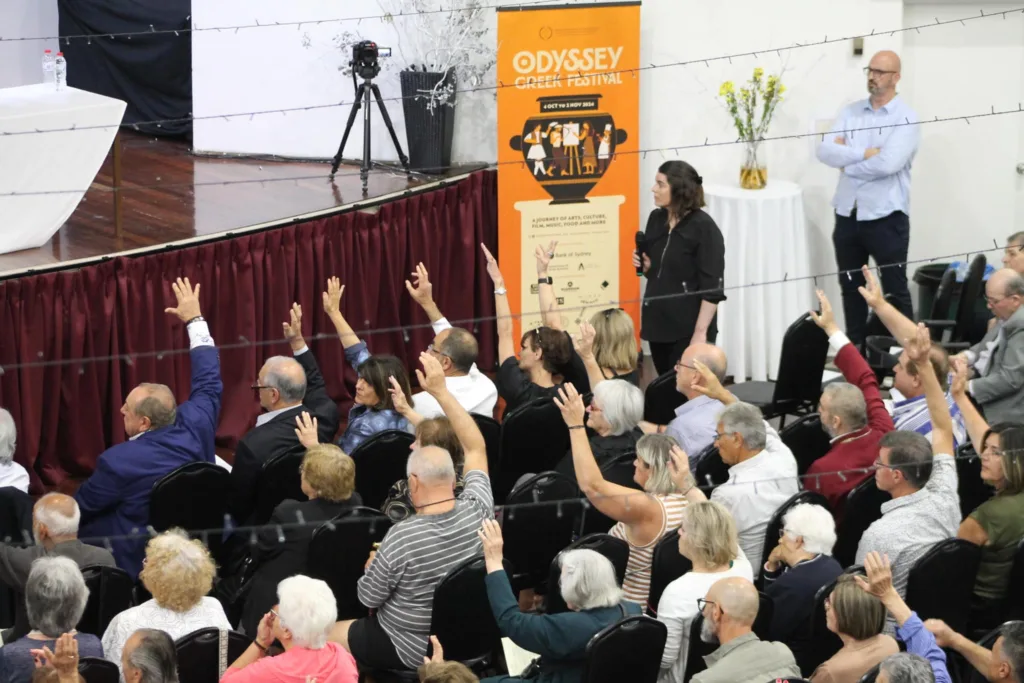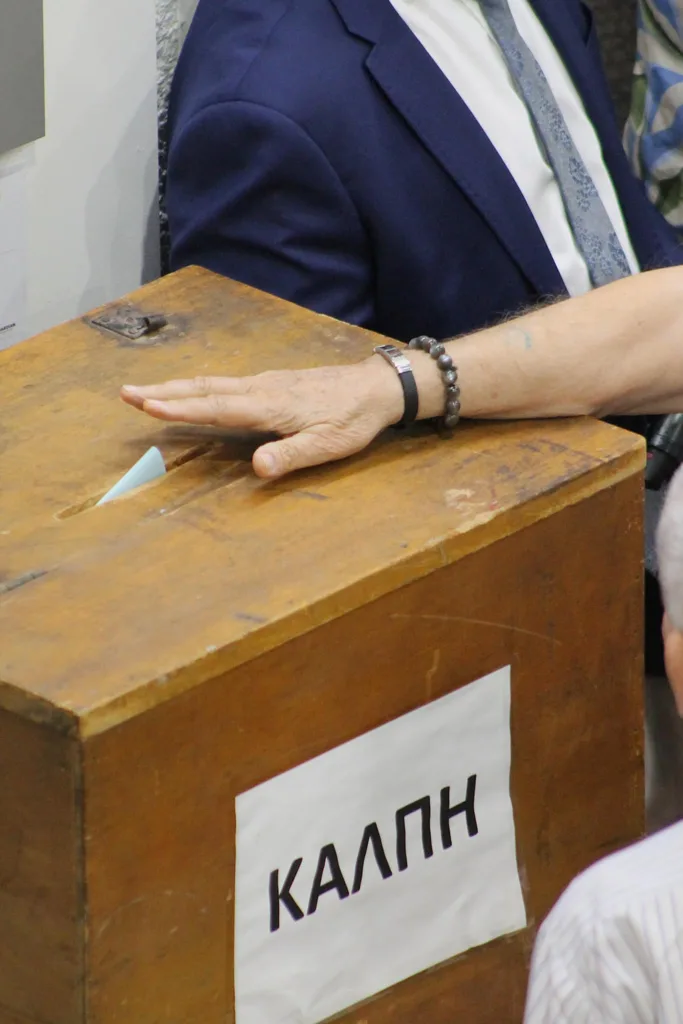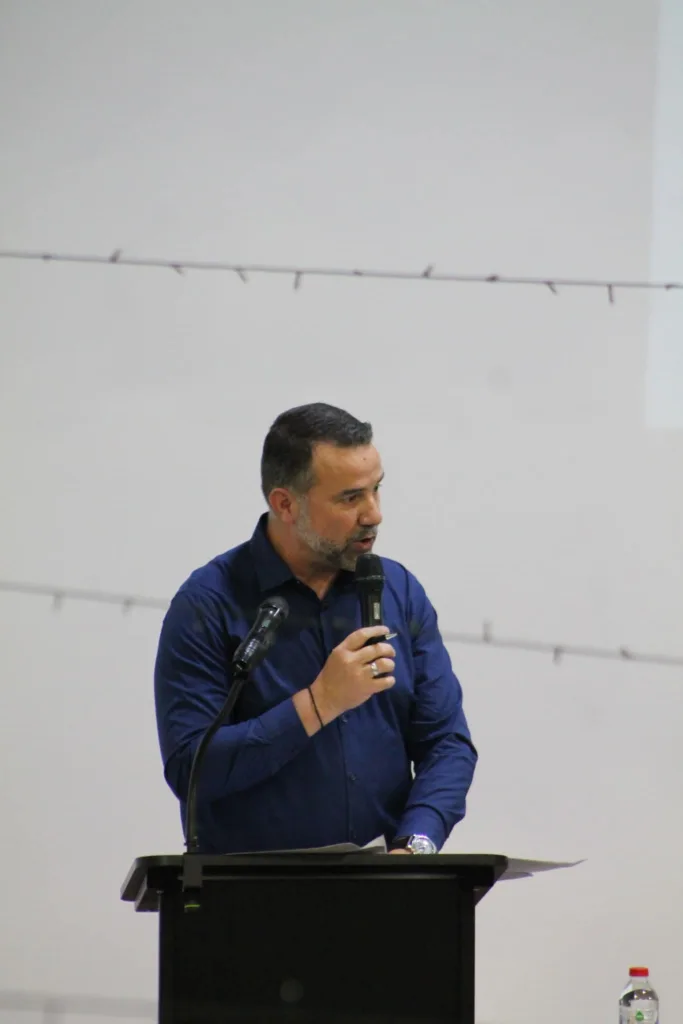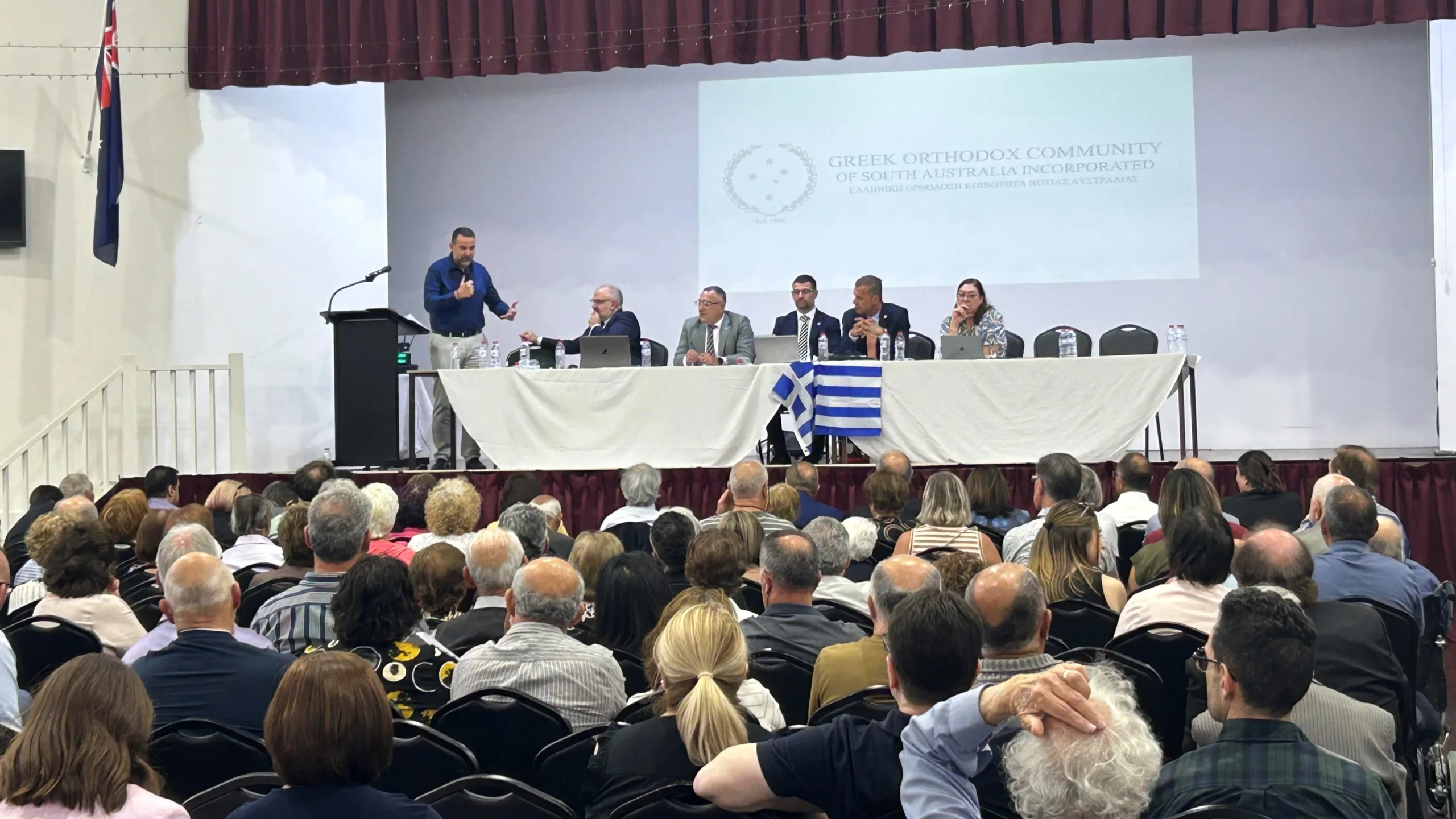The proposed changes that would have marked the end to a 64-year schism between the Greek Orthodox Community of South Australia (GOCSA) and the Greek Orthodox Archdiocese of Australia (GOAA) have not passed, despite 61% of support from members.
500 community members met on Sunday, October 27 for an Extraordinary General Meeting (EGM) to determine the future of GOCSA – with a vote of this kind not being brought to members in 60 years.
As it stands, the religious services provided by the Autocephalous Church (of which GOCSA are a part) are recognised by the Australian Government pursuant to the Marriage Act 1961 (Cth) – however the sacraments provided to the community are not recognised by the GOAA or other canonical Orthodox Churches.
At the EGM, there were three motions which were put before GOCSA members, which can be found in the Notice of Extraordinary General Meeting on the GOCSA website.
Motion 2 related to the “Resignation of GOCSA’s Membership of the Autocephalic Greek Orthodox Church of America and Australia and to enter into an agreement with the Greek Orthodox Archdiocese of Australia” and that, amongst other points, “[t]he Greek Orthodox Community of South Australia Inc will not sell or otherwise change the use of the Association’s Churches for a period of five years from the date that this resolution is passed.”
Motion 3 proposed “in accordance with Art. 2b of the Constitution to determine from time to time the meaning of “Orthodox Faith” and “Greek Orthodox Faith”, bringing the interpretation in line with that of the Archdiocese and other Churches under the jurisdiction of the Ecumenical Patriarchate.”

President of GOCSA, Peter Gardiakos, commenced his initial address to the meeting with a passionate plea to the membership to consider the significance of the vote, understand their important role in exercising their democratic right and the impact of the decision before members.
Mr Gardiakos outlined the historical legacy of the community, noting its 94-year history and the 64 years of schism which has persisted, outlining that the vote is a way to remove the separation of Greek communities. He explained that the schism has separated families, brothers and sisters, and that what they are intending to do is unite as one Greek people.
Mr Gardiakos emphasised that GOCSA was at a crossroads with this decision, and that the power to determine the course of GOCSA’s history and the future of its children and grandchildren lies with the members and their vote.
Throughout the meeting there was fiery opposition to the proposed amendments, emotional and impassioned debate, as well as fierce advocacy for the proposed changes. The meeting fostered an open and transparent process, allowing members to express themselves and make their opinions and voices heard.
However, it must be noted that there was a steady flow of members who cast their ballots early and left before the meeting concluded, disgruntled by the fiery nature of the debate and the emotional nature of some speeches, describing them as “platforms to air grievances.”


In documents seen by The Greek Herald, arguments against the motion were numerous across a range of areas. Opposition voices were concerned with areas such as GOCSA’s autonomy and governance, likening it to a loss of sovereignty. Additionally, it was feared that the proposed “hybrid employment model” unfairly shifts responsibilities and liabilities onto GOCSA, with opponents calling for greater transparency in relation to legal and financial advice, particularly around clerical remuneration. Historical tensions between the two entities exacerbated opposition, with some seeing the agreement as a continuation of unresolved conflicts dating back to 1958.
On the other side, those who spoke in favour of the motions advocated for the prospect of unity, including a powerful address by SA Chief Justice Chris Kourakis (in his capacity as a member of GOCSA). Arguments in favour of the motions echoed the opening comments of President Gardiakos, making the case for unity of the Churches for the sake of the next generations and the preservation of GOCSA into the future.
Peter Psaroulis (of the GOCSA Executive Council) in the meeting outlined that “the Deed ensures that GOCSA’s governance and management will not be subject to the Archdiocese. The Archdiocese will not close any of the GOCSA churches. The Archdiocese will recognise our sacraments upon application at no charge. The Archdiocese will not request any annual contributions from community churches. The Archdiocese will not see any transfer of title or deeds, and GOCSA will retain legal ownership and control of GOCSA’s churches.”
Arguments and analysis ensued in relation to the acknowledgement of sacraments, and the definition of the application process. This was clarified by Con Costi (GOCSA legal counsel) who stated that “…the Archdiocese will recognise historical sacraments. If you want to, you can ask for a certificate. But it will already be recognised. The application is for the purpose of receiving a certificate. And there will be no fee for that certificate. The reference to the Archbishop’s discretion does not relate to the recognition of historical sacraments.”
The meeting concluded at approximately 6:40pm after hours of debate and discussion. While members left the meeting with strong opinions, it was clear that members were provided a platform to express all concerns and queries they may have had with the proposals before them.
The vote count arrived at approximately 11:30pm, indicating that the proposed motions in relation to the unification of the churches had been unsuccessful.
Following the vote result, while some have described it as a win for the independence of GOCSA, there is continuing concern amongst other GOCSA members who told The Greek Herald that GOCSA has faced persistent difficulties in sourcing priests to provide services to the community, and that this problem “will not change/go away as a result of this vote.”
Dr Vladamir Devrelis, President of the SA Intercommunities Council, reflecting on the outcome of the vote stated that “…we pray for unity… we thank the brave and hardworking people that work for a better tomorrow as they keep the next generations in mind.”
The results of the votes are as follows:
MOTION 1: Required 60% to pass
- Numbers 319 FOR: 177 AGAINST
- 63% achieved – CARRIED
MOTION 2: Required 75% to pass
- Numbers 305 FOR/191 AGAINST
- 61% achieved – NOT CARRIED
MOTION 3: This was separated and passed in two parts.
FIRST PART: Needed 315 to pass.
- Numbers 258 FOR/ 162 AGAINST
- NOT CARRIED
SECOND PART: Needed 372 at 75% to pass
- Numbers 309/188
- NOT CARRIED
